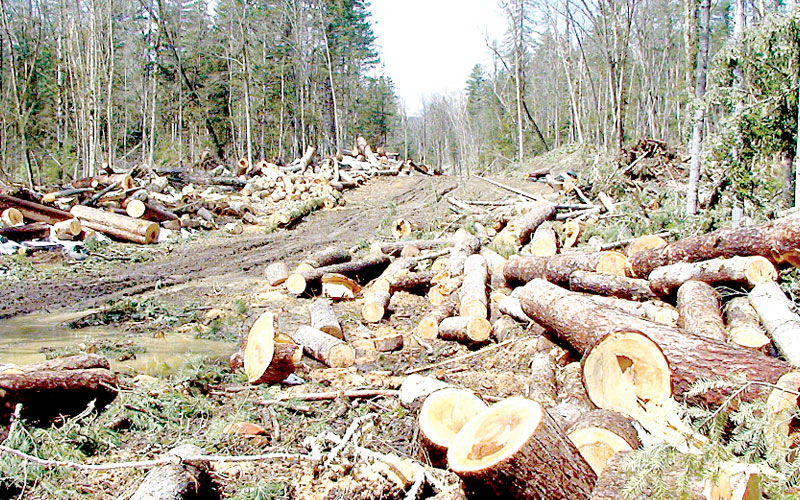Billions, jobs lost due to ban on logging, KEFRI report says

The Kenya Forest Service (KFS) lost more than Sh4 billion in revenue in the last six years due to the logging ban with 44,000 employees in the forest sector losing jobs, a study shows.
A report by the Kenya Forestry Research Institute (KEFRI) indicates that the ban also resulted in an increase in importation of timber from 3,231.38 cubic metres to 29,355.39 cubic metres leading to a loss of foreign exchange of Sh1.04 billion.
Farmers who had invested in commercial farm forests in Western Kenya region yesterday welcomed the government’s move to lift the ban.
Jackson Kipkosgei from Elgeyo Marakwet County said the six-year ban had serious socio-economic impact on various players in the forestry sector.
“Many farmers lost billions in revenue while thousands of workers were sacked resulting in increased poverty levels,” said Kipkosgei.
The farmers said the lifting of the moratorium will boost trade in tree products especially wood transmission poles in terms of volumes and value leading to rise in income.
The ban led to economic collapse of forest dependent centres and communities mostly around Maji Mazuri, Mau Summit, Elburgon, Molo, Makutano, Kaptagat and Bukar.
KEFRI director Joshua Cheboiwo said the logging ban had a serious impact on giant saw milling companies like Eldoret-based Rai Play woods that employs thousands of workers.
He said the ban resulted in increase in prices culminating in additional fuel wood expenditure of Sh1.3 billion by Kenya Tea Development Authority (KTDA) factories, Sh3 billion by schools, Sh46 million by tobacco curing and Sh19.7 by charcoal consumers.
“Many saw millers lost their assets including machinery to service loans they secured from financial institutions to sustain their businesses while others had paid royalties running to millions to harvest trees in public forests,” said Joshua Too, from Kimondi, Nandi county.
The farmers called on the government to put in place tough measures to ensure that it is only genuine saw millers who are issued with licences to harvest trees.
Data from KEFRI indicates that the construction and building industry consumes more than eight million cubic metres of timber annually, saving the country over Sh24 billion in terms of imported timber products.
The timber industry is among major contributors of the national revenue with the North Rift region collecting Sh663 million as royalties from forest products in the 2019/2020 financial year.
The six-year moratorium on harvesting on public forests led to rapid increase in sawn wood prices in most markets in the region.
Sawn wood retail prices have risen from Sh10,000 to Sh30,000 per tonne in most markets while the cost is much higher for cypress timber due to decline in supply.
Most commercial treatment plants for transmission poles in the region have been operating below capacity due to shortage of semi-processed poles.
Many timber industries in the Western region had written to the workers’ unions about their intention to lay off some employees due to redundancy.
People Daily established that many timber industries in the North Rift depend on public forests like Kaptagat and Timboroa for raw materials.











